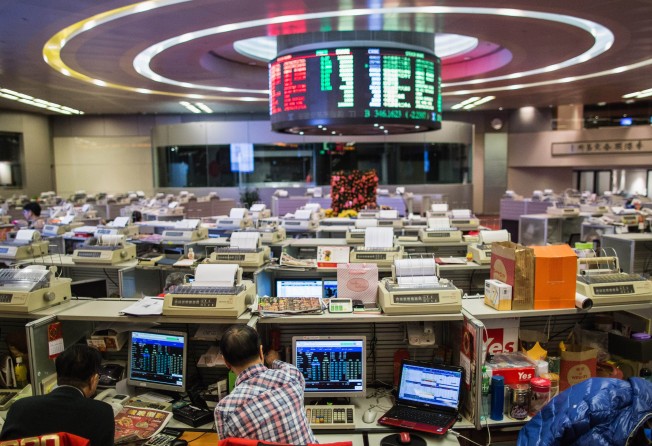Hang Fat Ginseng -- A tale of greed in Hong Kong’s stock market

Ginseng is a good energizer but an overdose will cause bleeding, so the folks say. Hang Fat Ginseng has certainly lived up to its name.
Its profit and share price tripled from late 2015 onwards. Then, on January 28, its price dived 91 per cent within the first 15 minutes of trading.
Yesterday, its founder and Chairman Matthew Yeung said he’s selling his control to pay off some margin financing. His financier is likely to take control of the listed shell which worth HK$600 million, according to market sources.
This is a classic tale of what has and would happen to the dozens of newly listed companies in the past two years. It is a tale of greed.
Yeung is no stranger to the game.
The so-called “King of American Ginseng” loved to talk about his clever bets on apartments, currencies as well as derivatives.
He listed his ginseng trading business in July 2014. A few months later he told bankers he wanted to sell shares at a valuation three times that of its market price.
Some took it as a joke, reckoning that it would happen only if he managed to sell ginseng to the Martians because Hang Fat already controlled half of the pretty mature market.
To their surprise, he did – Hang Fat had a six-month non-stop rally.
How? First, it reported eye-popping growth. Its profit rose 267 per cent to HK$438 million between 2013 and June 2015. The management attributed that to the exploding ginseng price.
Stock commentators blared about Hang Fat’s stunning growth on radio, TV and newspapers.
The reality is most of the ginsengs Hang Fat sold has not been paid. Its 2015 interim sale was HK$1.2 billion. Its account receivable was HK$1.3 billion, 14 times above its 2013 level.
But who cares. The ginseng trader even managed to sell HK$500 million worth of stakes and notes to two mainland financial institutions.
As Hang Fat’s price shot up, so has the borrowing of Yeung and his family, as suggested by records with the Central Clearing System(CCASS).
This is because no broker would lend you money until you have moved shares from your personal safe into its CCASS account as collateral. The result is an increase in shares in the clearing system.
Given 70 per cent of Hang Fat is in the Yeung family, it would be fair to suggest that any significant rise in stakes in CCASS is related to some financing arrangement.
Another possibility is Yeung was paranoid of fire or flooding his home and would like to put his shares somewhere.
During Hang Fat’s price spike, they have deposited an 18 per cent stake with brokers. If that’s collateral, they would have borrowed more than $300 million. There is no evidence to suggest any link between the loan and the price hike.
In the meantime, Yeung and his brother like many of the bosses of newly listed companies have made bets with all sorts of investment schemes proposed by their private bankers with money from margin finance. It was jolly good.
By summer, it was all over. The A share market crashed; the yuan depreciated; and Hang Fat’s price dropped 30 per cent.
The brothers pledged more shares to pay up the margin call and to support Hang Fat’s price.
They spent at least HK$220 million buying up Hang Fat between August and December, according to company announcements. They had no choice because the lower the price, the worse the margin calls.
It was futile. The market headed south with the renminbi.
They had to borrow more. Money Matters estimated from CCASS records that they have pledged more than 45 per cent of Hang Fat’s stake by 27 January.
The brothers conceded that they have engaged in margin financing with Hang Fat shares as collateral for personal investment purposes but told no one of the size.
As the pair scrambled for cash, the hunters were circling.
Some clients of China Industrial Securities (CIS) have been raising its position in Hang Fat to 13 per cent in the past month despite the fall. It was either via lending to the brothers or taking over their margin finance contracts from other brokers.
Then, they began to dump the shares. The snowball effect triggered by the 91 per cent mark down of prices on 28 January was big enough to bring the Yeungs to their knees.
They were forced to sell 6.17 per cent at a 50 per cent discount for a meagre HK$23 million. To who? Surprisingly, it’s the clients of CIS. Yeah it is bloody.